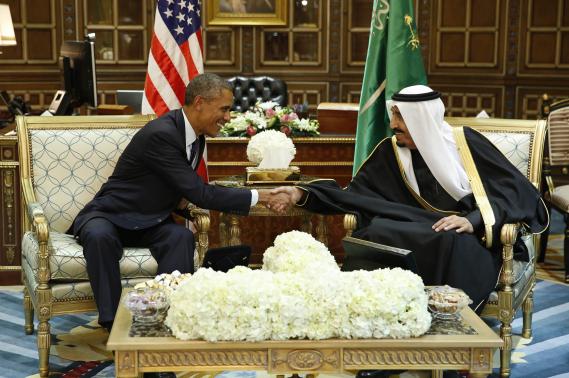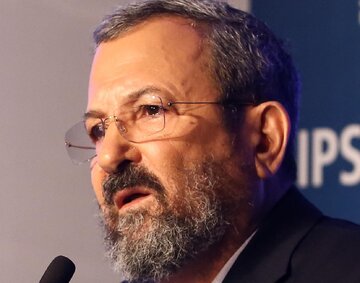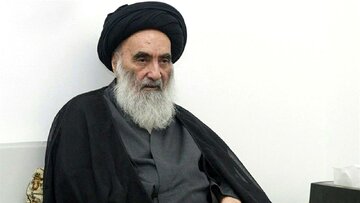U.S. President Barack Obama met with Saudi Arabia's King Salman on Tuesday to pay respects to the late King Abdullah and bolster a relationship that now stretches well beyond oil interests to security cooperation across the volatile Gulf Arab region.
King Salman, in his first official talks with a high-level foreign delegation since the death of his half-brother on Friday, did not express reservations over U.S.-led negotiations aimed at curbing Iran's nuclear program, a U.S. official said.
It was unclear whether King Salman's comments on the nuclear talks offered a hint of change. Saudi Arabia, the Middle East’s top Sunni power, has been anxious over the possibility that the talks would lead to a rapprochement between the United States and the kingdom's main rival, Shi'ite-led Iran.
The king said Tehran should not be allowed to build a nuclear weapon, the U.S. official told reporters on Air Force One following a meeting between the leaders and dinner at Erga Palace in central Riyadh. A nuclear deal with Iran would be a major legacy achievement for Obama.
Obama cut short a trip to India to fly to Riyadh, cancelling plans to visit the Taj Mahal.
He was joined on the four-hour visit by Secretary of State John Kerry and a bipartisan group of prominent current and former officials who presence helped to convey the importance of a relationship that has endured on-off strains in recent years.
The new king also signaled continuity in energy policies by the world's top oil exporter, the U.S. official said. The two discussed the stability of the oil market but not current low oil prices, the official added.
"He simply suggested they would continue to play their role within the global energy market as they have done and that we should not expect any difference in the Saudi position,” the U.S. official said, referring to the king.
"The message was one of continuity and commitment to caring for their traditional roles."
Late last year, Saudi Arabia shocked oil markets by deciding not to cut production to shore up tumbling crude, opting to defend its market share against rising North American production rather than attempt to hold prices at around $100 a barrel
Even though the United States is now less dependent on Saudi oil supplies thanks to a domestic production boom, the kingdom’s willingness to keep output high despite tumbling global oil prices has bolstered Obama’s domestic economic recovery efforts as well as his strategy of keeping pressure on oil producers Russia and Iran. Both those nations are under international sanctions.
/149





